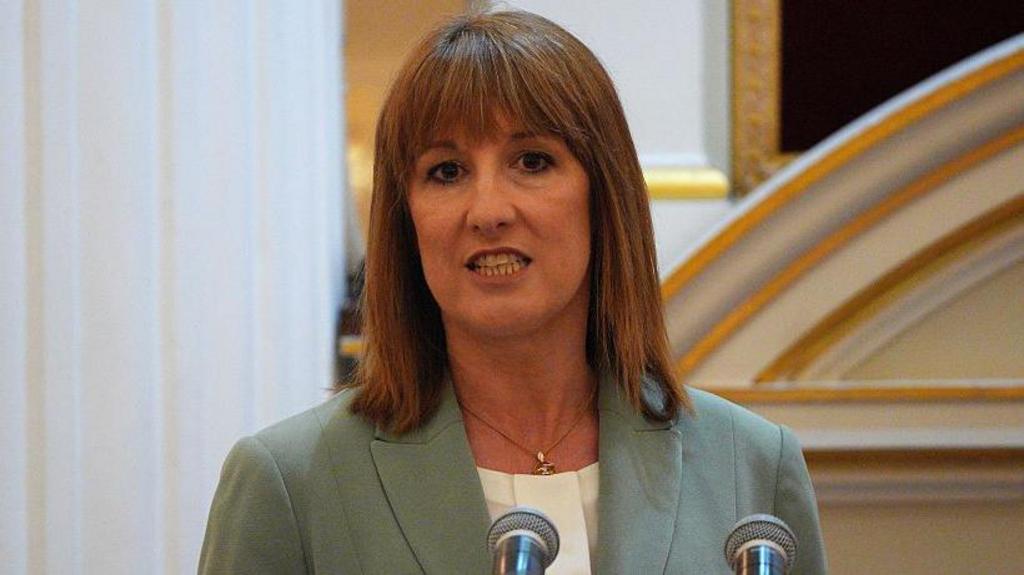“`html
The UK government is reportedly considering a shift to annual assessments of public finances, following a recommendation from the International Monetary Fund (IMF).
The IMF suggests this change would mitigate “overly frequent” policy adjustments made in response to meeting government borrowing targets.
Currently, the Office for Budget Responsibility (OBR), the UK’s independent fiscal watchdog, provides bi-annual evaluations of the government’s progress in adhering to its borrowing limits.
Earlier this year, revisions in the OBR’s forecasts prompted Chancellor Rachel Reeves to announce £5 billion in health-related welfare reductions, which were subsequently reversed after a Labour backbench revolt last month.
As part of its annual review of the UK economy, the IMF has advised the government to allow for greater flexibility within its fiscal rules. This would prevent minor fluctuations in the economic outlook from unduly influencing assessments of compliance.
Fiscal rules are generally implemented by governments in developed nations to maintain credibility with financial markets, which are essential for government borrowing.
Overall, the IMF commended the UK economy and its recent “bold agenda” of pro-growth reforms, affirming the “credibility” of its medium-term borrowing plans and the advantageous position afforded by the UK’s trade agreements amidst global uncertainties.
However, the IMF cautioned that potential risks to the government’s strategy must be “carefully managed,” highlighting the relatively limited buffer available to the UK in the event of economic shocks.
“Fiscal rules could easily be breached if growth disappoints or interest rate shocks materialise,” the IMF stated.
To mitigate this, the IMF suggested considering alternatives to the state pension triple lock, expanding VAT applicability, means-testing more benefits, and introducing co-payments for higher-income NHS users.
The government’s consideration of the IMF’s recommendation to reduce the frequency of assessments suggests an acknowledgement that the current bi-annual policy has led to a cycle of continuous policy adjustments to meet targets.
Adherence to the IMF’s advice could potentially result in more significant tax increases than initially anticipated in the autumn Budget, as the Chancellor aims to build a more substantial financial buffer to address the volatile global economic climate.
In response to the IMF’s report, Treasury officials affirmed the government’s commitment to meeting its “non-negotiable fiscal rules,” welcoming and pledging to consider the IMF’s “recommendations to further support policy stability.”
The Institute for Fiscal Studies recently suggested de-emphasizing the Spring Statement with a more flexible borrowing target, to avoid the need for frequent adjustments to tax and spending plans.
The Chancellor is currently adhering to two primary rules for government finances. They are:
Responding to the IMF’s report, Reeves stated: “Today’s IMF report confirms that the choices we’ve taken have ensured Britain’s economic recovery is underway, and that our plans will tackle the deep-rooted economic challenges that we inherited in the face of global headwinds.”
“Our fiscal rules allow us to confront those challenges by investing in Britain’s renewal.”
Supermarkets sold more drinks and fuel sales were up as people “ventured out”, the UK statistics body says.
Data shows a slump in car and van production as the industry trade body hopes a UK-US tariff deal will bring “confidence”.
A big increase in debt interest payments meant government borrowing was higher than expected last month.
The monthly cost of renting rose just as fast as mortgage increases over the last three years, figures show.
The state borrows to fund day-to-day spending as well as long-term infrastructure projects.
“`

